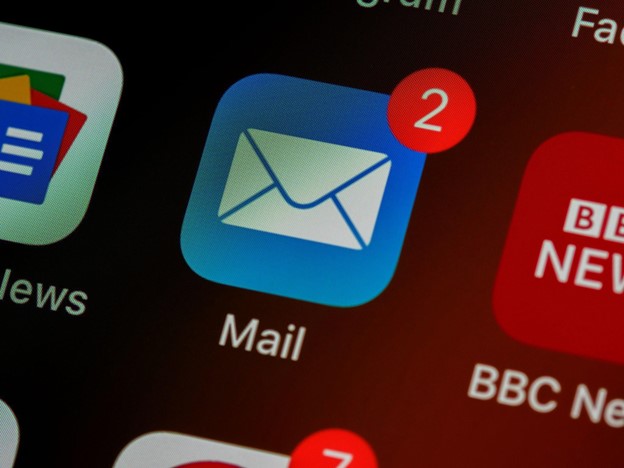
Marketers are actively investing in content marketing. To stay ahead, professionals must be aware of the changing landscape and adapt swiftly. In this article, we delve into the most promising trends of content marketing in 2023 that are making waves in the industry. Each trend, while holding its unique ground, contributes towards forming an all-encompassing content strategy.
Sustainability-Focused Content
Consumers gravitate towards brands that echo their values as they grow more environmentally conscious. Brands are rising to this challenge by incorporating sustainability into their content narratives.
Creating sustainability-focused content isn’t about jumping on the eco-friendly bandwagon. It’s about authentically showcasing your brand’s commitment to sustainable practices. It’s about proving that your business is part of the solution, not the problem.
When a brand’s sustainability ethos shines through its content, it resonates with the ‘green’ consumer. It sparks an emotional connection, fostering brand loyalty.
Rising Emphasis on Content Intelligence
Businesses must rely on data and patterns to produce content that speaks directly to their audiences. The drive to optimize content based on data has led to a significant rise in the use of content intelligence.
This innovative technology offers insightful data, aiding in predicting content trends and understanding audience engagement. Amid this evolution, some companies are truly standing out as the best Content Intelligence providers in the industry.
Their cutting-edge solutions are helping businesses predict future trends and make data-backed decisions. These tools enable organizations to craft content that caters perfectly to their audience, providing an edge in the evolving digital market. This revolution in understanding and utilizing content data underscores the rising importance of content intelligence in 2023.
User-Generated Content (UGC)
User-generated content (UGC) is gaining momentum as a compelling element in a brand’s content strategy. It injects authenticity into brand narratives, forges a sense of trust, and sparks invaluable interactions between consumers and brands. UGC’s effectiveness can be attributed to several factors:
- Authenticity: UGC presents real-life experiences and opinions, making it more relatable and credible.
- Trust: UGC fosters trust, as consumers find reviews and peer testimonials more reliable than branded content.
- Engagement: It encourages consumers to engage with brands, strengthening brand loyalty actively.
- Variety: The types of UGC are diverse, from user-submitted articles and images to reviews and social media shout-outs, providing a rich tapestry of content.
- ROI: As a cost-effective strategy, UGC contributes significantly to brands’ return on investment.
With these advantages, UGC has become a game-changing trend in the content marketing realm in 2023.
Immersive Content
The revolution in technology has given rise to immersive content, pushing the boundaries of traditional text and static imagery. Augmented Reality (AR) and Virtual Reality (VR) are at the forefront of this innovative approach, breathing life into digital interactions. Immersive content blurs the lines between reality and the digital world, creating compelling, engaging experiences that are hard to forget.
It’s not just about consuming information anymore; it’s about immersing in an experience. Imagine browsing a fashion retailer’s website, and instead of merely viewing static images of clothes, you are placed in a virtual fitting room. Or perhaps, while researching travel destinations, you find yourself virtually exploring the streets of a foreign city.
These experiences engage users differently, keeping them hooked and prompting repeated interactions.
Mobile-First Content
The rapid surge in mobile users highlights the need for businesses to think ‘mobile-first’ in their content strategy. Content needs to be designed and delivered with the small screen in mind. It must be easily consumable, perfectly formatted, and provide an excellent user experience on mobile devices.
Google has also made a strong statement in favor of mobile content. Its mobile-first indexing policy emphasizes the importance of mobile-friendly content. Websites with mobile-optimized content enjoy better search engine rankings, leading to increased visibility and higher traffic.
It’s not just about being on mobile anymore; it’s about mastering the art of mobile content. The continued shift to mobile underscores its importance in the content marketing landscape.
E-A-T Content
E-A-T stands for Expertise, Authoritativeness, and Trustworthiness. It’s a set of criteria that Google and other search engines use to assess the quality of content. As content marketers, it’s crucial to understand and apply these principles to our content.
Here’s what each component of E-A-T means for your content strategy:
- Expertise: The content must reflect your brand’s expertise in its field, providing valuable insights that readers cannot find elsewhere.
- Authoritativeness: It’s about establishing your brand as a respected authority in its industry. The content should be well-researched, accurate, and offer a unique perspective.
- Trustworthiness: Your content must be reliable and trustworthy. Include verifiable facts, transparent sourcing, and clear disclaimers to build trust with your audience.
In 2023, E-A-T content is a requirement for successful content marketing, leading to improved site visibility and a solid brand reputation.
Voice Search Optimization
The growth of virtual assistants has spurred a new way of internet browsing, making voice search a trend that marketers can’t afford to ignore.
However, the optimization for voice search calls for a shift in how we craft our content. It demands more conversational language, mirroring how people naturally speak. It involves long-tail keywords that align more with spoken phrases than typed queries.
Say goodbye to blunt, robotic keyword stuffing and hello to natural, flowing language. It’s about ensuring your content has the best answer when someone asks their virtual assistant a question.
Content Personalization
In the era of customized experiences, content personalization has become a potent tool in content marketing. This strategy tailors content to resonate with individual users based on their unique characteristics, needs, and preferences. It’s about transforming generic content into something that speaks directly to the user.
This level of customization requires sophisticated technology. Brands harness the power of advanced analytics, AI, and machine learning to fine-tune their content delivery. These technologies sift through vast amounts of user data, learning patterns, and predicting preferences.
The result is hyper-personalized content that strikes a chord with the user, enhancing engagement and brand loyalty.
Conclusion
Content marketing in 2023 is evolving at a rapid pace. Brands must stay abreast of these changes to stay competitive. Embracing trends like content intelligence, UGC, immersive content, and E-A-T content is critical. Moreover, adjusting for mobile-first indexing, voice search optimization, and content personalization can make a difference. Finally, leaning into sustainability-focused and long-form content could be game-changing.





